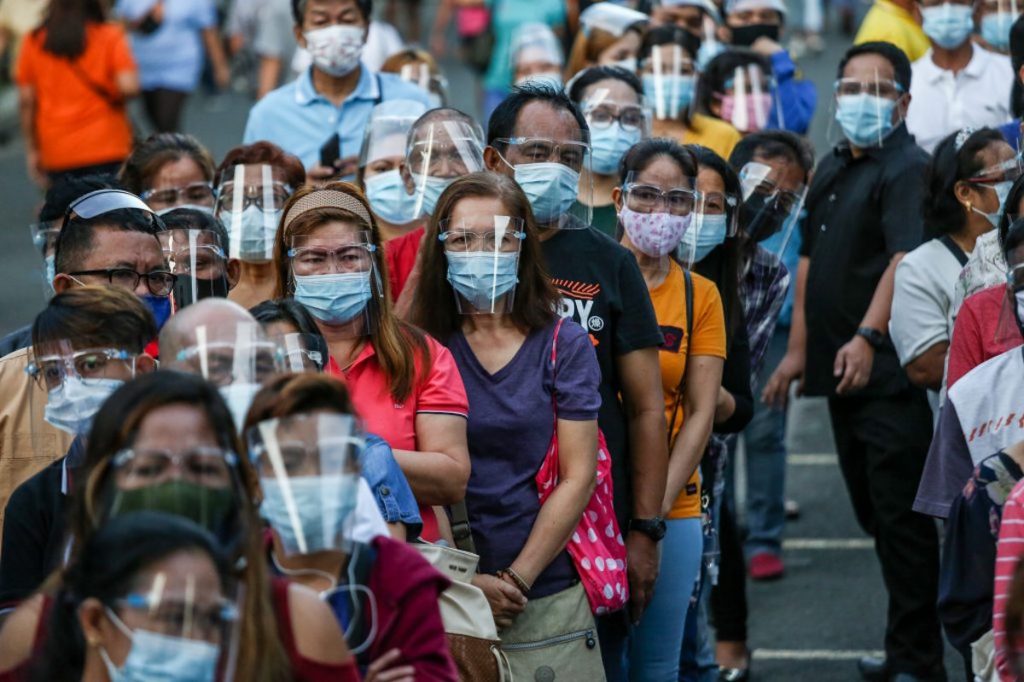The presidential palace on Monday, September 20, announced that Philippine President Rodrigo Duterte has approved the conduct of limited face-to-face classes in areas considered as “low-risk” for COVID-19.
Government spokesperson Harry Roque said the participating schools will be determined by the education and health departments to ensure that proper health protocols will be followed.
According to the approved guidelines, Kindergarten classes will be allowed for up to 12 pupils, while Grade 1 to 3 classes will have a maximum of 16 pupils.
Classes may also last up to three hours at a maximum. Technical vocational classes, on the other hand, can have 20 students at a time.
The initial implementation will involve 100 public schools and 20 private schools in low risk areas.
COVID-19 cases still high
The health department on Monday announced 18,937 new COVID-19 cases while the cumulative death toll approached 37,000.
Up to 2,385,616 people nationwide so far have been infected, with 176,850 or 7.4% currently sick.
About 92.7% of these active cases are mild, 2.7% asymptomatic, 2.6 % moderate, 1.4% severe, and 0.6% critical.
The daily health bulletin showed the positivity rate was at 26.3%, which means at least 1 in 4 of the 72,770 tests reported on September 18 turned out positive for the coronavirus.
This percentage is considered critical by the US nonprofit COVID Act Now.
Earlier, the Department of Health also announced that the highly contagious Delta variant is now the most common lineage among sequenced samples in the country after it accounted for 24.16% of the total.
A single person infected with the variant can spread the virus to around eight or nine others, health authorities said.

Assessment needed on regular basis
Education Secretary Leonor Briones said assessments will be conducted on a regular basis to identify the necessary adjustments needed.
For the school year 2021-2022, about 28.2 million students were enrolled for the “blended learning system” implemented by the government amid during the pandemic.
The figure is higher than the 26.2 million total enrollees in 2020 and the pre-pandemic figure of 27 million students.
The Alliance of Concerned Teachers welcomed the approval of the pilot run of limited face-to-face classes, saying it is “long overdue.”
“This is a significant step toward improving the delivery of education amid the pandemic, and is direly needed amid grave learning loss and inaccessibility of distance learning to the youth who mostly belong to impoverished families,” read the teachers’ statement.
The group, however, called on the government to ensure the following for all participating schools:
- Retrofit classrooms for safe limited face-to-face classes;
- Install health facilities such as adequate comfort rooms, hand-washing facilities, school clinic, and others;
- Hire health and sanitation personnel;
- Conduct health check and mass testing to all education workers and learners who will participate in in-classroom learning;
- Provide free medical supplies and personal protective equipment;
- Ensure safe mode of transportation;
- Implement health protocols such as reducing the class size to a maximum of 15 students, rotation of face-to-face class schedules, regular disinfection of school premises, practice of social distancing and wearing of face masks






